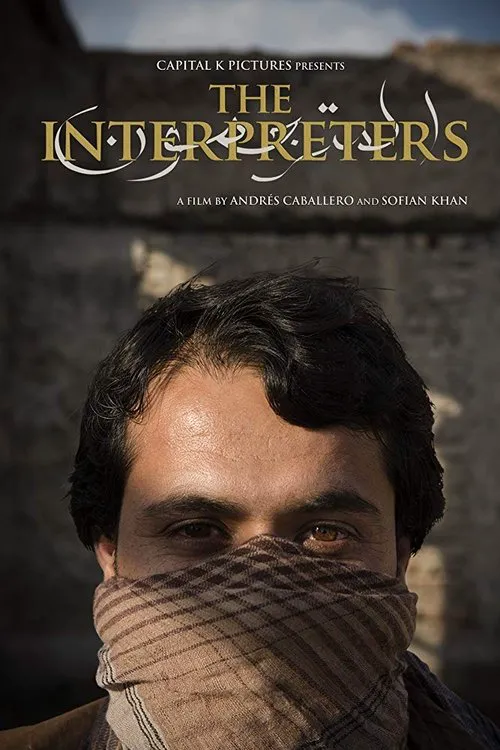The Interpreters

Plot
The Interpreters is a documentary film that delves into the lives of Iraqi and Afghan interpreters, as well as the American veterans who worked alongside them during the U.S. war efforts in these countries. The film sheds light on the often-overlooked stories of these interpreters, who played a crucial role in facilitating communication between the U.S. military and local populations. However, their association with the U.S. war effort often put them in grave danger, leading to a multitude of challenges in rebuilding their lives. As the film progresses, it becomes apparent that the interpreters' lives were forever changed by their role in the war. Many faced dire consequences for their involvement, including death threats, physical violence, and forced displacement from their homes. In Afghanistan, where the U.S. military presence has been significant, interpreters often received offers to be resettled in the United States or other countries, but the process was often cumbersome and fraught with uncertainty. The documentary highlights the story of Abdul Rahman, an Afghan interpreter who spent years working with the U.S. military. After being repeatedly threatened by the Taliban, Rahman was finally able to secure a spot in the U.S. interpreter program, which aimed to resettle interpreters and their families in the United States. However, even as he embarked on a new life in America, Rahman couldn't shake off the memories of his past experiences. Rahman's story is mirrored in that of other interpreters featured in the film, who shared their harrowing tales of survival and perseverance. One Afghan interpreter, who wishes to remain anonymous, speaks of the countless times he had to navigate treacherous landscapes, avoiding bullets and bombs, to facilitate communication between U.S. soldiers and local militia forces. Another interpreter, an Iraqi man named Ahmed, recounts the day he was accused of being a spy by the Iraqi government, leading to a harrowing escape from his home town. The film also explores the human side of the interpreters, revealing the complexities and nuances of their experiences. Many of the interpreters were not simply neutral translators but individuals who formed deep bonds with their American counterparts. They often found themselves drawn into the American way of life, adopting Western habits and values, and sometimes questioning their own cultural identities. However, these relationships were often fraught with tension and misunderstanding. The American veterans, who had grown accustomed to the support and camaraderie of their fellow soldiers, sometimes struggled to understand the interpreters' cultures and motivations. In turn, the interpreters often felt a deep sense of mistrust towards their American colleagues, fearing that their loyalty would eventually be called into question. Despite these challenges, the film presents a testament to the resilience and determination of the interpreters. Many continued to rebuild their lives in the United States, often through sheer force of will and the support of their families. The film also highlights the efforts of organizations and individuals working to provide assistance to the interpreters, including advocacy groups, community organizations, and even U.S. lawmakers. One such organization, the Veterans for Standing Rock, has been working tirelessly to provide support to Afghan interpreters, including helping them navigate the complex process of securing asylum in the United States. The group's founder, a veteran of the U.S. military himself, recognizes the sacrifices made by the interpreters and is determined to ensure that they receive the recognition they deserve. Throughout the film, there is a sense of quiet dignity and purpose that underscores the interpreters' experiences. It is a testament to the humanity that lies at the heart of even the most fraught and complex conflicts. As the interpreters rebuild their lives, they are also rebuilding their identities, struggling to come to terms with the past and forge a new future. Ultimately, The Interpreters is a powerful indictment of the U.S. military's treatment of the people who aided them in their war efforts. It is a searing critique of the U.S. government's policies, which have left countless interpreters without support or compensation for their sacrifices. At the same time, the film offers a message of hope and resilience, as the interpreters refuse to give up in the face of adversity and rebuild their lives, often in the most unexpected ways.
Reviews
Recommendations



